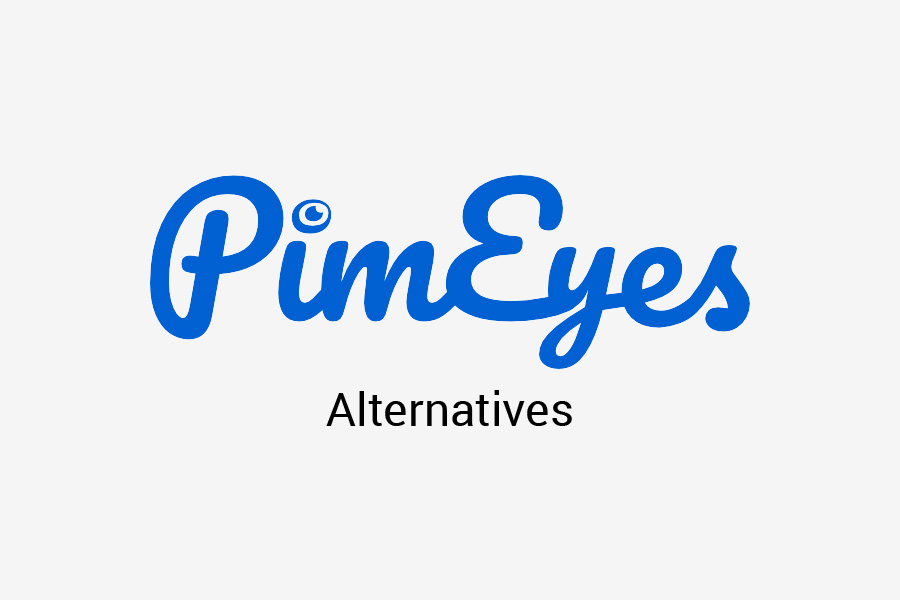Pimeyes, an innovative reverse image search engine, has become increasingly popular due to its ability to track down images on the internet. However, it’s always good to have alternatives, as different tools have their unique features and strengths. In this blog post, we’ll explore the top 9 Pimeyes alternatives and help you determine the best fit for your reverse image search needs.

1. Google Images
1.1. How to use Google Images for reverse image search
Google Images is one of the most popular and widely-used reverse image search tools. To perform a reverse image search, simply visit the Google Images website, click on the camera icon in the search bar, and upload an image or paste an image URL. Google will then display visually similar images and related websites.
1.2. Pros and cons of Google Images
Pros:
- Extensive database of indexed images
- User-friendly interface
- Available on both desktop and mobile devices
Cons:
- Limited search filters
- May not provide the most accurate results for less common images
2. TinEye
2.1. Unique features of TinEye
TinEye is another popular reverse image search engine that specializes in finding exact matches for your image. TinEye uses image recognition technology to search the web for duplicates, making it an excellent tool for identifying instances of image theft or copyright infringement. Additionally, TinEye offers browser extensions for Chrome, Firefox, and Opera, allowing you to search images with a simple right-click.
2.2. Comparing TinEye with Pimeyes
TinEye and Pimeyes both offer accurate reverse image search results. However, TinEye focuses more on finding exact image matches, whereas Pimeyes may deliver a broader range of visually similar images. TinEye also provides search results sorted by the best match, most changed, and oldest, giving users a clearer understanding of the image’s origin and usage.
3. Bing Visual Search
3.1. How to perform reverse image searches on Bing
Bing Visual Search, Microsoft’s answer to Google Images, allows users to search the web using images rather than keywords. To use Bing Visual Search, visit the Bing homepage, click on the camera icon in the search bar, and upload an image or paste an image URL. Bing will then display relevant search results, including visually similar images and websites containing the image.
3.2. Advantages of Bing Visual Search
- Large image database
- Advanced search filters, such as size, color, and layout
- Provides additional information about the image, like the original source and usage rights
4. Yandex Images
4.1. Using Yandex for reverse image search
Yandex, Russia’s leading search engine, offers a powerful reverse image search feature called Yandex Images. To use Yandex Images, visit the Yandex website, click on the “Images” tab, and then click on the camera icon in the search bar. Upload your image or paste the image URL, and Yandex will provide visually similar images and websites containing the image.
4.2. Yandex vs Pimeyes: A comparison
While Pimeyes and Yandex both offer accurate reverse image search results, Yandex may be more suitable for users searching for images in the Russian language or from Russian websites. Yandex also provides additional search filters, such as size and orientation, making it easier for users to narrow down their search results.
5. Image Raider
5.1. Features and functionality of Image Raider
Image Raider is a versatile reverse image search tool that combines the power of multiple search engines, including Google, Bing, and Yandex. By using Image Raider, you can search for your image across all these search engines simultaneously, increasing the chances of finding accurate results.
5.2. Comparing Image Raider with Pimeyes
While both Pimeyes and Image Raider provide reliable reverse image search results, Image Raider has the added advantage of utilizing multiple search engines at once. This feature can save users time and effort by delivering more comprehensive results in a single search.
6. Baidu Image Search
6.1. How to use Baidu for reverse image search
Baidu, China’s leading search engine, offers a powerful reverse image search feature called Baidu Image Search. To use Baidu Image Search, visit the Baidu homepage, click on the “Images” tab, and then click on the camera icon in the search bar. Upload your image or paste the image URL, and Baidu will provide visually similar images and websites containing the image.
6.2. Pros and cons of Baidu Image Search
Pros:
- Extensive database of indexed images, especially from Chinese websites
- Provides additional search filters, such as size and color
Cons:
- The interface is primarily in Chinese, which may be challenging for non-Chinese speakers
- May not be as effective for non-Chinese images or websites
7. ImgOps
7.1. The unique selling points of ImgOps
ImgOps is a meta-tool that combines various reverse image search engines and image editing tools into a single platform. Users can perform reverse image searches using Google Images, Bing Visual Search, Yandex Images, and other tools, all from one convenient location. ImgOps also provides access to image editing tools, making it easy for users to modify their images before performing a search.
7.2. Comparing ImgOps and Pimeyes
While both ImgOps and Pimeyes offer reverse image search capabilities, ImgOps has the added advantage of providing access to multiple search engines and image editing tools. This feature makes ImgOps an excellent choice for users who want to streamline their reverse image search process and perform quick image edits on the go.
8. Karma Decay
8.1. Using Karma Decay for Reddit reverse image search
Karma Decay is a specialized reverse image search tool designed specifically for Reddit. It helps users find duplicate or similar images posted on Reddit to avoid reposting content. To use Karma Decay, visit the Karma Decay website, upload your image or paste the image URL, and the tool will display any matching Reddit posts.
8.2. Karma Decay vs Pimeyes: A comparison
Karma Decay and Pimeyes serve different purposes in the realm of reverse image search. While Pimeyes is suitable for general reverse image searches, Karma Decay is specifically designed for Reddit users. If your primary goal is to find Reddit posts containing a particular image, Karma Decay is the better choice.
9. Pinterest Visual Search
9.1. How to use Pinterest for reverse image search
Pinterest Visual Search is a powerful tool for finding visually similar images on the Pinterest platform. To use Pinterest Visual Search, log in to your Pinterest account, click on an image that interests you, and then click on the magnifying glass icon in the bottom-right corner of the image. Pinterest will display visually similar pins, making it easy to discover new content and ideas.
9.2. Comparing Pinterest Visual Search with Pimeyes
While Pimeyes is an excellent tool for general reverse image searches, Pinterest Visual Search is specifically designed for finding visually similar images within the Pinterest platform. If you’re searching for inspiration, ideas, or content related to a particular image on Pinterest, the Pinterest Visual Search tool is your best option. For broader reverse image searches, Pimeyes and other alternatives mentioned in this article are more suitable.
How to Choose the Right Reverse Image Search Tool for Your Needs
When selecting a reverse image search tool, consider the following factors:
- Database size: Larger databases increase the likelihood of finding accurate results.
- Interface: User-friendly interfaces make searching easier and more efficient.
- Search filters: Advanced search filters help narrow down results and find the perfect match.
- Specific needs: Consider specialized tools, like Karma Decay for Reddit or Pinterest Visual Search for Pinterest, when searching within specific platforms.
By carefully evaluating these factors, you can select the most suitable reverse image search tool for your specific requirements.
Conclusion
In this blog post, we’ve explored the top 9 Pimeyes alternatives, each with its unique features and strengths. By familiarizing yourself with these tools, you can unlock the full potential of reverse image search and find the best option for your specific needs. Don’t hesitate to explore and experiment with different tools to discover which one works best for you.
Frequently Asked Questions (FAQs)
- Why should I use a Pimeyes alternative? Pimeyes alternatives offer unique features and capabilities that may better suit your specific needs. Exploring different tools can help you find the most accurate and relevant reverse image search results.
- Are there any privacy concerns with using reverse image search tools? Privacy policies vary between different reverse image search tools. Always review the privacy policy of the tool you’re using and ensure it meets your expectations regarding data usage and storage.
- Can I use multiple reverse image search tools for better results? Yes, using multiple reverse image search tools can help you find more accurate and comprehensive results. Different tools have different strengths and databases, so utilizing multiple tools increases the chances of finding the information you need.
- Are these Pimeyes alternatives free to use? Most of the Pimeyes alternatives mentioned in this article are free to use. However, some tools may offer additional features or benefits through paid subscription plans.
- Which reverse image search tool is best for finding copyrighted images? TinEye is an excellent choice for finding copyrighted images, as it specializes in locating exact image matches and identifying instances of image theft or copyright infringement.
- How accurate are the results from these alternative tools? The accuracy of the results depends on the tool, the size of its database, and the algorithms it uses. Generally, the more popular reverse image search tools, like Google Images and Bing Visual Search, offer accurate results due to their extensive databases.
- Do these reverse image search tools work on mobile devices? Most reverse image search tools work on both desktop and mobile devices. Some tools, like Google Images and Bing Visual Search, also offer dedicated mobile apps or mobile-optimized websites for a seamless user experience.
